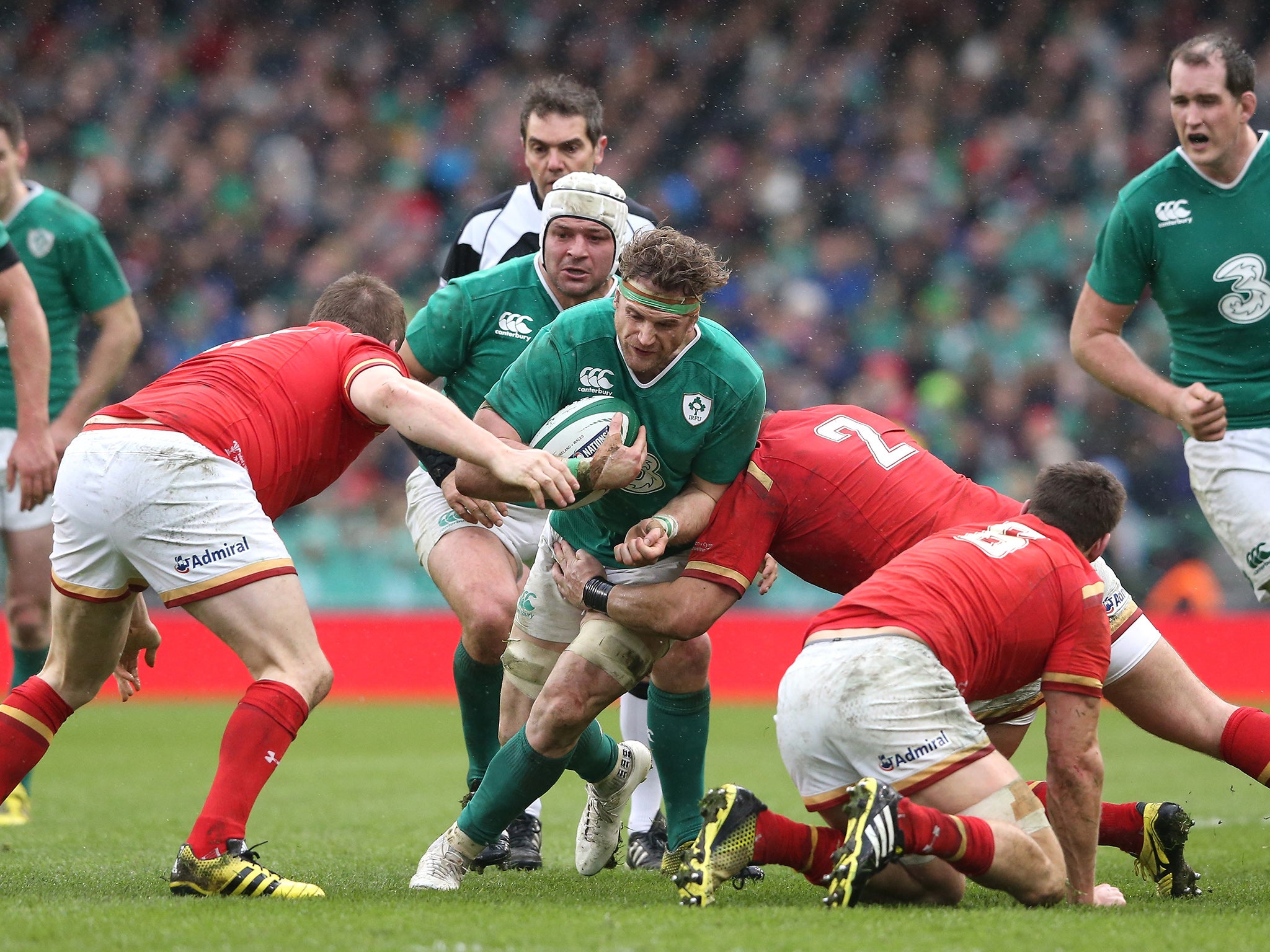Six Nations: Statistics make ugly reading for northern hemisphere rugby
A comparison of this year's tournament with the 2012 edition reveal how England, Scotland, Wales, Ireland, France and Italy's play has declined in quality

Your support helps us to tell the story
From reproductive rights to climate change to Big Tech, The Independent is on the ground when the story is developing. Whether it's investigating the financials of Elon Musk's pro-Trump PAC or producing our latest documentary, 'The A Word', which shines a light on the American women fighting for reproductive rights, we know how important it is to parse out the facts from the messaging.
At such a critical moment in US history, we need reporters on the ground. Your donation allows us to keep sending journalists to speak to both sides of the story.
The Independent is trusted by Americans across the entire political spectrum. And unlike many other quality news outlets, we choose not to lock Americans out of our reporting and analysis with paywalls. We believe quality journalism should be available to everyone, paid for by those who can afford it.
Your support makes all the difference.Much has been made of the declining standards of northern hemisphere rugby in recent years, culminating in a dismal World Cup showing last autumn where not a single side from the Six Nations made it into the semi-finals for the first time in the tournament’s 28-year history.
So far in this year’s Six Nations Championships, there has been very little to admire about the quality of rugby on display from any of the teams. In his Telegraph column, Brian Moore described the tournament as having “plenty of effort, close results, yet a dearth of real quality.” Stuart Barnes went one step further, describing the tournament as “average in the extreme.”
The 2011 World Cup in New Zealand was a positive one from a northern hemisphere perspective with Wales giving a fantastic account of themselves before losing in the semi-final. Their conquerors, France, were desperately unlucky not to defeat the hosts in the final. The Six Nations championship that followed that World Cup was an exciting affair and saw Wales win their third grand slam in seven years.
A comparison of the official statistics from that tournament four years ago with this year’s edition makes shocking reading and highlights a lack of technical quality on show in northern hemisphere rugby at present.
Perhaps the most puzzling statistic is the errors committed. Through three games of the 2016 Six Nations every single team involved has committed more than double the number of errors they made through 5 games in 2012.
| Errors - 2012 | Errors - 2016 | |
| England | 59 | 125 |
| France | 57 | 116 |
| Ireland | 50 | 113 |
| Italy | 49 | 128 |
| Scotland | 54 | 116 |
| Wales | 40 | 102 |
This huge increase in the number of errors is a terrible indictment of the basic ball handling skills of the northern hemisphere sides at present. The numbers highlight an area of their play which is lagging significantly behind the southern hemisphere power houses of Australia, New Zealand, South Africa and now Argentina.
Another area where there has been a noticeable difference is in the percentage of possession’s which have ended in a kick (either out of hand or a kick for goal).
During Wales 27-23 victory over Scotland, both sides ended an astonishing 93 per cent of possessions with a kick. In the same fixture in 2012, Wales kicked 39 per cent of their possessions and for Scotland it was only 29 per cent.
This could again come down to a lack of basic ball handling skills, teams in the northern hemisphere appear reluctant to get the ball into the hands of their backs and play, preferring instead to kick for territory and hope the opposition makes more errors than you.
The offload is a skill which has been perfected by the All Blacks over the years, the ability to take contact and complete a pass whilst being tackled is an incredibly effective way of creating space and sucking in defenders. Northern hemisphere teams have never used the offload with the frequency of the All Blacks but the reluctance of some of the teams at this year’s tournament indicates a complete lack of creativity and confidence.
Ireland are the worst exponents having completed only five offloads through the opening three rounds of the tournament at an average of less than two per game. Four years ago, the Irish again racked up the fewest offloads, although the match average was almost four.
With almost four years remaining before the next World Cup, it’s not yet panic stations for the European sides. Yet in a sport where teams playing open, attacking, attractive rugby are currently being rewarded for their style of play it would be nice to see a shift in emphasis from powerful forward play and defensive strategy to trying to build teams who can compete right across the pitch and have the confidence to be creative on the field.
If not, it’s unlikely that the Six Nations will continue to enjoy full stadiums and bidding wars over TV deals, as the statistics show it is becoming an average product.
Join our commenting forum
Join thought-provoking conversations, follow other Independent readers and see their replies
Comments